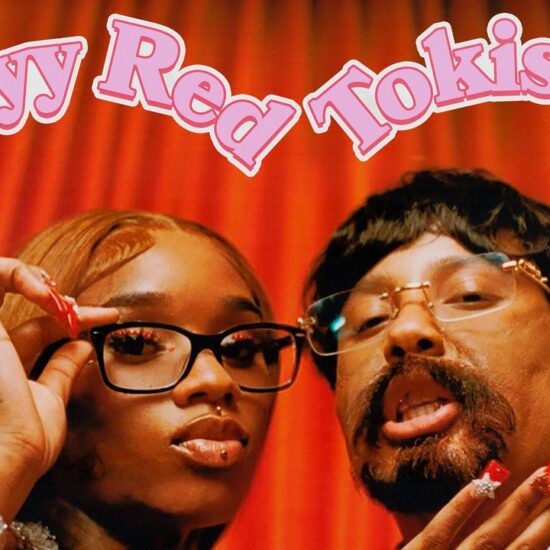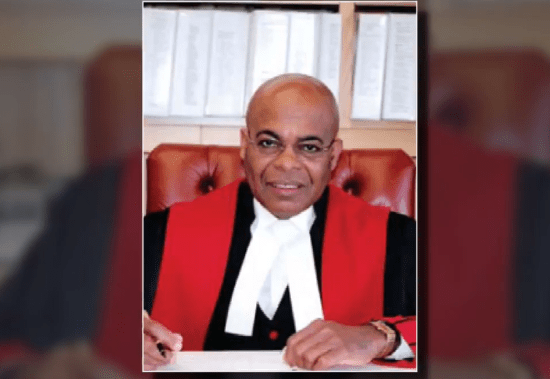
A federal judge voiced concern Friday that a sprawling copyright infringement lawsuit against reggaeton superstar Bad Bunny — and more than a hundred other artists including Karol G, Pitbull, Anitta, Drake, and Daddy Yankee — could put a chokehold on the “creativity” of an entire genre of music.
Still, U.S. District Judge Andre Birotte Jr. declined to issue an immediate ruling after hearing nearly two hours of argument over a defense motion to dismiss the high-profile case filed by lawyers for the Jamaican group Steely & Clevie.
The massive case, which consolidates more than 50 related lawsuits filed over the last two years, alleges Steely & Clevie’s 1989 hit “Fish Market” originated the distinctive dembow rhythm that’s become a signature of reggaeton music. The duo claims “Fish Market” has been copied or sampled in some 1,800 songs from more than 160 defendants without credit or compensation.
“What’s the end game? Does this lawsuit run the risk of arguably stifling creativity?… Look at the ripple effect this style has had on reggae, reggaeton, Latin music, Hip-Hop, you name it. Does this stifle the creativity of all of those genres?” Judge Birotte, who said he worked as a party DJ in college, asked the parties in a Los Angeles courtroom Friday.
“Maybe we do need a reckoning,” Scott Burroughs, the lead lawyer for Cleveland “Clevie” Browne and heirs to the estate of Wycliffe “Steely” Johnson, responded. He claimed many of the defendants had no problem clearing samples from other artists included on their songs, so why should his clients be “left out in the cold.”
Bad Bunny’s lead lawyer Kenneth D. Freundlich denied the allegation his client infringed on Steely & Clevie’s work in the more than three dozen Bad Bunny songs named in the lawsuit. (The list includes “Tití Me Preguntó,” “Un Ratito” and “Una Vez.”)
He said there are no straight samples of Steely & Clevie sound recordings in any of his client’s works, so the claims against Bad Bunny center on the duo’s composition copyrights only, which “filter out” elements such as instrument choice, synthesized sounds, and timbre. He argued that without those elements, the only thing left is the drum rhythm, which he said is not protectable.
His attorney told the court he “was not looking to throw out the entire case” at this stage, rather he thinks it should be pared down by tossing the infringement claims related to the written composition of “Fish Market,” as opposed to its sound recording used in samples.
“I want this (case) to be cut down by 75%, with the musical composition out of here. And frankly, I don’t think they’re going to have any claims against Bad Bunny left, because there’s not a sample in there,” Freundlich argued.
“We’ll see what happens, but I think Benito needs to be out of this thing. I hope the judge gets that right,” Freundlich told Rolling Stone after the hearing. (Bad Bunny’s legal name is Benito Antonio Martínez Ocasio.)
Lawyers on both sides sparred over whether a drum rhythm is protectable under copyright law, whether “Fish Market” was truly original, and why Browne and the heirs to Johnson’s estate waited until 2020 to even register “Fish Market.” A defense lawyer pointed out that the plaintiffs never sued Denis (Dennis The Menace) Halliburton over his hit 1990 song “Pounder Riddim,” which famously copied the drum pattern on “Fish Market” and was later sampled widely, allegedly by several defendants.
“An entire genre of music, reggaeton, grew up over 30 years. Did they sue? Did they bring a claim? Did they do anything? No,” lawyer Donald Zakarin, who represents several defendants including Luis Fonsi, said.
For his part, Judge Birotte was interested in the question of whether “prior art,” meaning music that existed prior to the composition of “Fish Market,” was something he should consider.
“Prior art does matter when we’re talking about combination, selection and arrangement claims. It goes into the new or novel standard,” Zakarin said. “One way you look at that is, ‘What existed?’ Well, there was revival music. The plaintiffs… they heard this in the streets of Jamaica. They heard these beats, they borrowed it. So what? They borrowed this piece, that piece. That means it’s not new or novel.”
Burroughs disputed the argument, saying his clients’ work was original and that the concept of “prior art” did not apply in this particular case. “In 1989, when this song was released… this was an original work, there was nothing like it,” he said.
“So your view is that before this, nothing like it existed?” Judge Birotte asked. “The boom-bap-boom-bap sort of rhythm, you think there was nothing like it before it?
Burroughs said his client’s version has “seven discrete elements” that made it new and protectable. In the complaint, he and his fellow lawyers described the “groundbreaking” drum loop on “Fish Market” as a kick drum, hi-hat, and snare playing a one-bar pattern with a synthesized tom drum and synthesized bass note playing on beats one and three — and timbales at the end of every second bar.
“How would you distinguish this, if at all, from the traditional dancehall rhythms used since I was a kid in reggae? If you go on the streets of Jamaica… big speakers, same beat,” Judge Birotte asked. “Again, I was a college party music DJ. I had probably hundreds — hopefully this is beyond the statute of limitations — hundreds of CDs from the streets of New York and New Jersey with literally the same riddim running for 45 minutes.”
Burroughs didn’t budge, describing the particular drum pattern as “absolutely original” in 1989. He said the fact that so many artists went on to allegedly copy the song with “mathematical precision” proves it was special.
“This is a difficult question. I see the arguments on both sides,” Judge Birrote said shortly before taking the matter under submission.
In their motion to dismiss, Bad Bunny and his lawyers argued that the plaintiffs were using “a smoke and mirrors approach” by claiming their choice of instruments, synthesized sounds, and the “deep tone timbre” of “Fish Market” all contributed to the protectability of the work.
“Plaintiffs erect a façade of protectability by including (elements) that are compositionally irrelevant under Ninth Circuit law,” they wrote. “Once that veneer is stripped off, all that remains is the Dem Bow Rhythm.”













